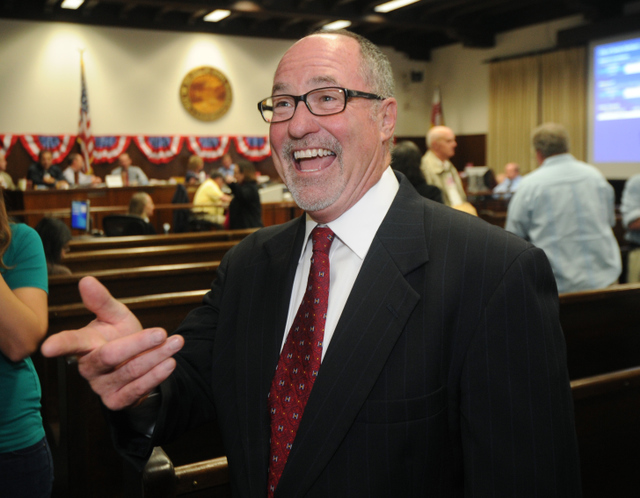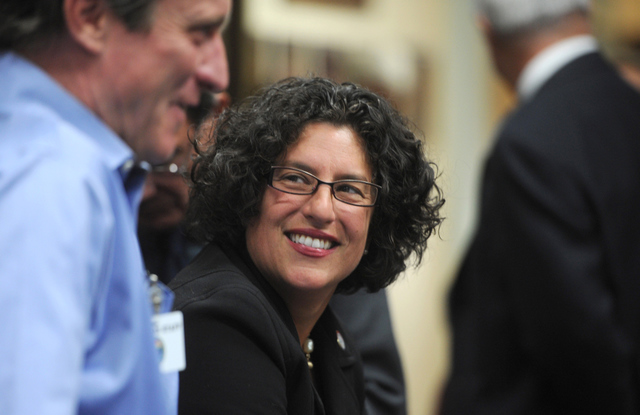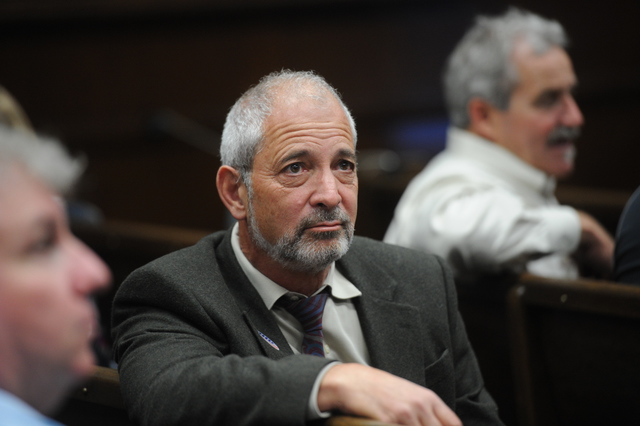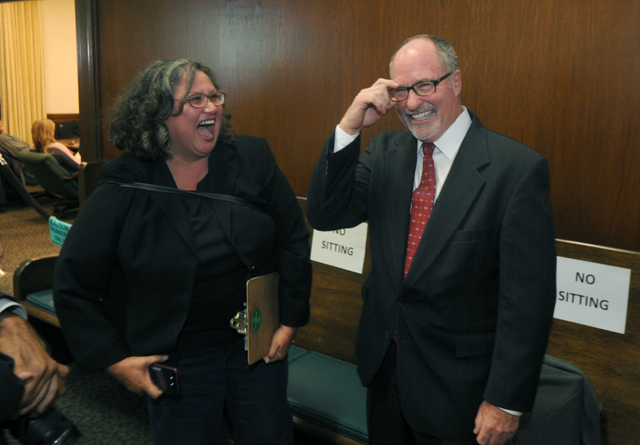2013 City Council Election Results
Hart Wins; Schneider Smacks Scoles; and Most Things Remain the Same

Three incumbents and one semi-incumbent handily won reelection Tuesday night in a race marked by notably low voter turnout. Before the election, Democrats controlled a four-seat majority on the nominally nonpartisan city council. With the election, that number stays the same.

Mayor Helene Schneider — the political headliner — easily cakewalked her way into a second term, beating her sole opponent, Mesa neighborhood activist Wayne Scoles, by a whopping 73 to 26 percent. Schneider, widely believed to be setting her sights on higher office, raised more than $115,000; Scoles, by contrast, did not raise enough to trigger campaign reporting requirements.
In the race for the three council seats, incumbent Bendy White came in first, garnering 8,788 votes, or 18.2 percent. A political moderate and a longtime City Hall insider — not to mention one of three candidates to actually grow up in Santa Barbara — White secured 1,000 votes more than his closest rival despite what appeared to be a perilously laid-back campaigning style.
White, who often plays the role of council swing vote, compensated by drawing from a lifetime of friendships and connections that yielded him support from both sides of the aisle. By contrast, at least stylistically, candidate Gregg Hart — both a challenger and a former city councilmember — campaigned as if his life depended upon it.

The first candidate to announce, Hart vowed at the campaign’s outset he’d work harder and raise more money than anyone else. Despite opposition from the mayor, the mayor’s campaign manager Jeremy Lindaman, and Montecito activists who took out a last-minute negative ad in The Santa Barbara Independent and Santa Barbara News-Press blasting Hart for multiple conflicts of interests, Hart made good on his boast, winning 7,746 votes. On Election Day alone, his campaign made 17,000 phone calls reminding voters to turn in their ballots. And Hart set a new campaign fundraising record, generating over $120,000 in campaign donations.
On Election Night, a beaming Hart couldn’t shake enough hands, thank enough supporters, or find enough people to hug. “Why is this man smiling?” Hart asked, speaking of himself, while addressing a crowded room full of spirited Democratic Party activists celebrating at the Arch Rock Fish restaurant. The question was a playful riff on the hit piece headline.

Hart served two council terms before — the last one expiring in 2003 — making him only the second former councilmember to wage a successful comeback. The race was a ho-hummer with no obvious issues or clearly delineated slates of candidates; to the extent there were dramatic tensions, they lay between Hart and Mayor Schneider, who endorsed former councilmember David Landecker rather than Hart, who was backed by the Democratic Party. Both Hart and Schneider have repeatedly said they’ll be able to work with each other, but Schneider’s relations with the Democratic Party establishment, already strained, may emerge worse for the wear after this race. (Emblematic of the divide, Schneider held her victory party — along with White and Landecker — at the Casa Blanca restaurant, while the Democratic Party held its at Arch Rock Fish.)
Coming in third was incumbent Frank Hotchkiss, a former member of the Republican Central Committee and one of the council’s more outspoken conservatives. Hotchkiss was somewhat hobbled during the campaign by a pelvic injury sustained when the horse he was riding at Fiesta bucked him. But for conservatives, Hotchkiss was the clearest of choices, and his 6,522 votes were more than ample to land him a second term.

Placing fourth — trailing Hotchkiss by nearly 1,000 votes — was Landecker, who was followed closely by first-time candidate Lesley Wiscomb, a decline-to-state backed largely by slow-growthers and Republicans. Close on Wiscomb’s heels was Megan Diaz Alley, a first-time candidate, and by far the most outspokenly progressive candidate running; breathing down Alley’s neck was Jason Nelson — the hard-charging newcomer whose 10 months of service in Afghanistan featured prominently in his campaign. Trailing behind Nelson was planning commissioner and decline-to-state moderate Michael Jordan — with 1,705 votes — who got a slow start on fundraising and never made up the difference.
Bringing up the rear were two nontraditional candidates who use the campaign trail to raise issues but never the funds needed to be competitive: Cruzito Cruz with 1,202 and Matthew Hunter Kramer with 575. With no clear issues or ballot measures to generate much heat, turnout for the city’s third mail-in election was low, with just 37.9 percent of the eligible voters turning in their ballots.


